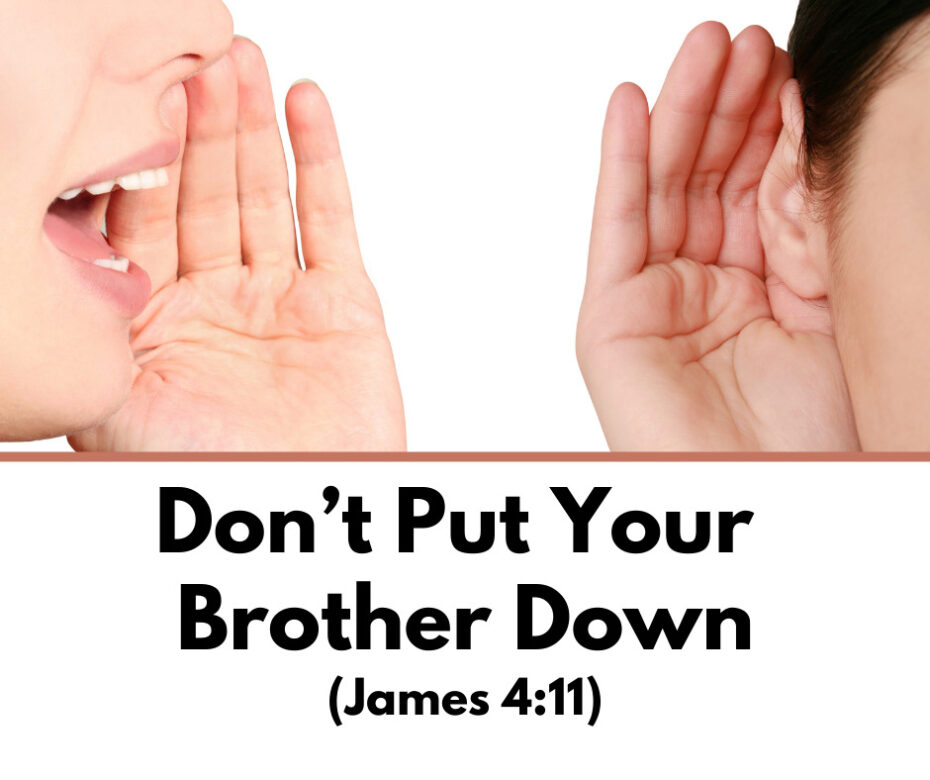George Harrison once passed a church billboard that read, “Gossip: The Devil’s Radio… Don’t Be a Broadcaster.”
That message hit home. Because he was a Beatle, the press gossiped about him constantly, and it hurt. It inspired Harrison to write the song “Devil’s Radio.”
Isn’t it interesting that even a non-Christian can understand and be convicted by the truth that gossip hurts?
Isn’t it sad, then, that James felt the need to warn believers against what they say about each other:
Do not speak evil of one another, brethren (James 4:11a).
What is the problem here?
In the previous verse, James counseled humility before God:
Humble yourselves in the sight of the Lord, and He will lift you up (Jas 4:10).
If you humble yourself, then God will lift you up or exalt you.
Do you know what a poor substitute for that kind of greatness is? When you put other people down to make yourself look good in comparison.
Isn’t that the underlying motivation for speaking evil about other people? To make yourself look good?
But far from greatness, says R. T. Kendall, that is smallness:
What is smallness? It is the constant state of having your self-esteem threatened. It is insecurity. Speaking evil (saying something that is less than flattering about another person) is often a defense mechanism to hide our insecurity and failure to trust God. But it always backfires. Instead of hiding our insecurity it betrays our insecurity. Speaking evil against a person is a way of exalting ourselves. It’s really our effort to reach out and try this art of vindicating ourselves. God doesn’t like that. It’s the opposite of humbling yourself. But the one who humbles himself shows that he’s not threatened (Kendall, The Way of Wisdom, p. 159).
As James suggests, speaking evil of your brother means having a judgmental spirit:
He who speaks evil of a brother and judges his brother, speaks evil of the law and judges the law. But if you judge the law, you are not a doer of the law but a judge (James 4:11b-c).
But notice that, according to James, when you slander, you are not only judging your brother but judging the law itself. In what way?
James may be thinking of how the Mosaic Law prohibited slandering other people (Lev 19:16).
Or he may be thinking of how Jesus commanded us to love our brothers, which is incompatible with speaking evil of them.
Either way, James’ argument seems to be that you break the law when you speak evil of your brother. And if you do that, you act as though it does not apply to you. So instead of being a doer of the law, you judge it as unworthy of your obedience.
Oscar Wilde is reported to have said, “Hear no evil, speak no evil—and you’ll never be invited to a party.” But the church is not a party. It’s a family. And a normal church life—which the 58 or so “one another” commands in the NT describe—requires you to take control of your tongue. Evil words express evil thoughts and can lead to evil actions that will destroy the church’s fellowship. So watch what you say and do not speak evil of one another.
If you humbly refuse to put your brother down, God will lift you up.


